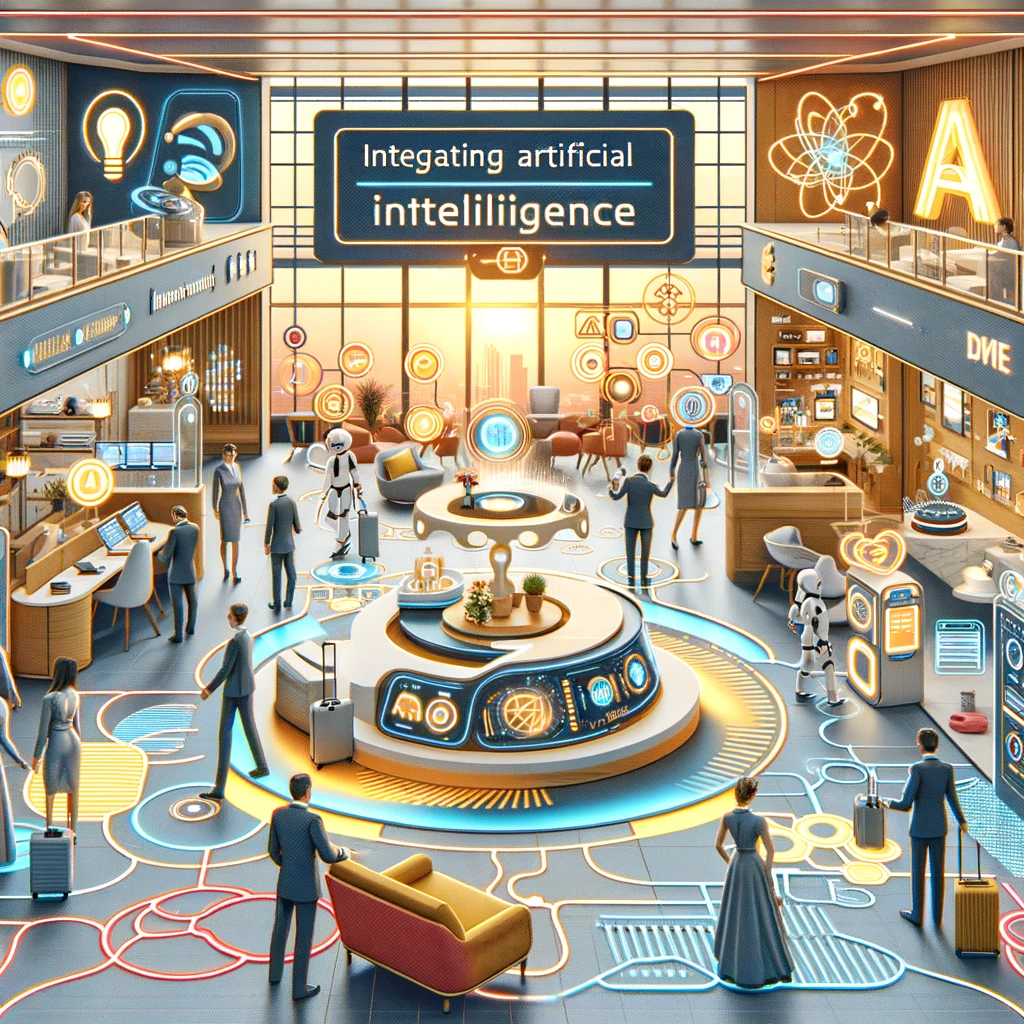AI is revolutionizing the hospitality industry, particularly in hotel operations. From streamlining check-in processes to personalizing guest experiences, the integration of artificial intelligence technologies is reshaping how hotels operate and cater to their guests. In this blog post, we will investigate into the various ways in which AI is being utilized in the hotel sector to enhance efficiency, improve customer service, and ultimately, drive revenue.
Table of Contents
The Evolution of AI in Hotels
Historical Perspectives
Hotels have always been at the forefront of adopting new technologies to enhance guest experiences and operational efficiency. The integration of Artificial Intelligence (AI) in hotel operations can be traced back to the early 2000s when chatbots and automated reservation systems started making their way into the industry. These early AI applications paved the way for more sophisticated implementations that we see today.
Current State of AI Technologies in Hospitality
Technological advancements have propelled the hospitality industry towards a new era of AI integration in hotel operations. Today, AI-powered chatbots, virtual assistants, and personalized recommendation systems have become standard features in many hotels worldwide. These technologies streamline booking processes, personalize guest experiences, and improve operational workflows, ultimately leading to higher guest satisfaction and increased efficiencies.
Understanding the current state of AI in the hospitality sector reveals a landscape where AI is no longer a futuristic concept but a practical tool driving tangible benefits for hotels and guests alike. The continuous evolution of AI technologies holds great promise for further enhancing the guest experience and optimizing hotel operations.
AI Applications in Hotel Management
Enhancing Customer Service Experience
With the integration of artificial intelligence into hotel operations, the customer service experience has been revolutionized. AI-powered chatbots and virtual assistants are available 24/7 to assist guests with inquiries, bookings, and personalized recommendations. Machine learning algorithms analyze guest data to predict preferences and provide personalized experiences, enhancing guest satisfaction and loyalty.
Streamlining Backend Operations
Enhancing backend operations in hotels is crucial for optimizing efficiency and reducing costs. AI technologies such as predictive analytics and automation tools can streamline tasks like inventory management, procurement, and staff scheduling. By automating repetitive tasks and providing data-driven insights, hotels can improve operational efficiency and staff productivity.
Streamlining backend operations with AI can also help hotels optimize revenue management and pricing strategies. Machine learning algorithms can analyze market trends, competitor pricing, and guest booking patterns to recommend optimal pricing strategies in real-time. This data-driven approach ensures that hotels maximize revenue and occupancy rates.
Challenges and Considerations
Ethical Implications and Guest Privacy
All organizations integrating artificial intelligence into hotel operations must consider the ethical implications and guest privacy concerns. For instance, using AI for personalized guest experiences raises questions about data privacy and consent. It is crucial to establish transparent policies regarding the collection, storage, and usage of guest data to ensure privacy and trust.
Overcoming Technical and Adoption Barriers
One of the key challenges in integrating artificial intelligence into hotel operations is overcoming technical and adoption barriers. This includes ensuring that the existing infrastructure can support AI implementation, training staff to utilize AI tools effectively, and addressing reluctance or skepticism towards AI technology. By providing adequate training and support, hotels can successfully navigate these barriers and optimize the benefits of AI.
Furthermore, hotels should be prepared to invest in upgrading their systems and processes to accommodate AI technology. Seamless integration of AI into hotel operations requires careful planning, ongoing support, and a commitment to innovation.
Future Perspectives
Predicting Trends in AI and Hotel Operations
With the rapid advancements in artificial intelligence, the future of hotel operations is poised for significant transformation. Predictive analytics, personalized guest experiences, and automated operations are among the key trends that will revolutionize the hospitality industry. By harnessing the power of AI, hotels can anticipate guest needs, streamline processes, and enhance overall efficiency.
Preparing for the Integration of Emerging Technologies
Integration of emerging technologies is crucial for hotels to stay competitive in the digital age. This involves aligning AI systems with existing operations, training staff on new technologies, and ensuring data security and privacy measures are in place. By proactively preparing for the integration of emerging technologies, hotels can position themselves as industry leaders and deliver exceptional guest experiences.
This includes investing in robust infrastructure, fostering a culture of innovation, and collaborating with technology partners to develop customized solutions that meet the specific needs of the hotel. By embracing emerging technologies, hotels can not only improve operational efficiency but also create a seamless and personalized experience for guests, setting new standards for the industry.
To wrap up
With these considerations in mind, integrating artificial intelligence into hotel operations can greatly enhance efficiency, improve guest experiences, and streamline various processes within the hotel industry. By leveraging AI technologies such as chatbots, smart devices, and data analytics, hotels can stay ahead of the curve and deliver personalized services that exceed guest expectations. Embracing AI also helps in reducing operational costs and identifying new revenue streams. As technology continues to evolve, it becomes increasingly crucial for hotels to adapt and leverage AI to remain competitive in the ever-changing hospitality landscape.










